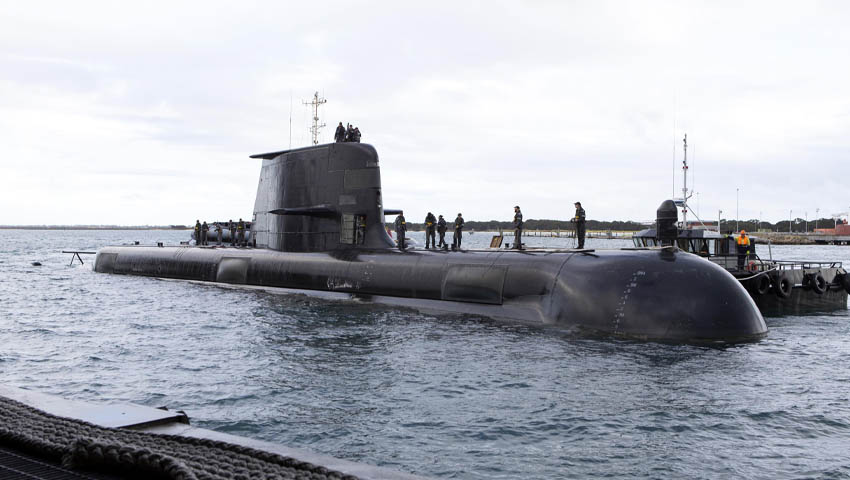Recent commentary in ASPI’s The Strategist suggests that estimates of jobs creation associated with the F-35 program are wildly overstated. These concerns come at a time where the economic attractiveness of large-scale, Australian-based projects – including Naval Group’s Attack Class submarine contract – are under similar scrutiny. Is it time for increased transparency around ‘economic promises’?
To continue reading the rest of this article, please log in.
Create free account to get unlimited news articles and more!
F-35 benefits: Muddied waters in the Senate
Delving into economic estimates for Australian-based companies involved with the F-35 Joint Strike Fighter (JSF) global supply chain, a supplementary Senate estimates hearing in November of last year cited attractively high figures.
Senior Defence officials testified at the hearing that "currently 50 companies are sharing $1.69 billion, and certainly we’re on track to achieve our $2 billion by 2023".
Continuing on to employment figures, the same testimony indicated that the initiative was "tracking to 5,000 jobs". Writing in The Strategist (ASPI), former economic adviser to Defence Capability Acquisition and Sustainment Group Rob Bourke gave these claims short shrift.
Citing an alleged lack of substantiating evidence for these claims, his estimates (based directly on ABS data) put the figures at well below 1,000 on an annual average basis. Even in 2023 – the period of peak employment projected for JSF-related production – his model predicts the number of jobs to fall well short of 2,000.
To be clear – this is not an attack on the JSF program, or the jobs it has undoubtedly contributed to the Australian economy. F-35 industry participation has resulted in a boon in long-term contracting to the Australian defence and manufacturing sectors across the board; ranging from industry primes such as BAE Systems through to SMEs and small business.
Investment has been particularly heavy in South Australia, which for example has seen the construction of a $10 million titanium manufacturing facility in Edinburgh Parks, South Australia.
The sophisticated nature of works carried out at the facility has allowed BAE Systems to partner closely with both national SMEs like RUAG Australia (treatments) and local operators such as Axiom (machining), to encourage South Australian industry to transition into complex defence and aerospace work.
Coincidence, or a trend?
The difference between the figures, however, is too stark to be ignored. Considering much has been made in the national press gallery this week surrounding French company Naval Group’s local employment commitments (regarding the $50 billion SEA 1000 Attack Class submarine program), it is worth considering whether these concerns can be chalked up to mere coincidence. The issue arises, of course, that the querying of job-creating capacity of Defence programs and industry partners does not take place in some sort of apolitical vacuum.
It is never entirely possible to separate bona fide seekers of government and industry accountability from those politically motivated in any sector; even less so in Defence. It is, however, easy to strike a balance where government is clear and direct on its expectations to contractors. Defence Minister Linda Reynolds should be congratulated on her response to concerns raised in The Australian this week.
Moving to quell fears stemming from comments of Naval Group Australia CEO John Davis – who suggested that Australian industry content of the works may not reach 50 per cent as expected – she said, “Our government will hold Naval Group to account for the commitments they signed on for to work with Australia’s world-leading defence and shipbuilding industry.”
The minister’s moves to allay fears over the SEA 1000 program come after the release of an Australian National Audit Office (ANAO) report criticising the program for failure to meet deadlines and budgetary estimates. Make of that what you will.
Regardless, the minister has moved beyond words to actions. Minister Reynolds has stated that she will raise these concerns directly with French Defence Minister Florence Parly on Friday at the Munich Security Conference.
She has even gone so far as to suggest that industrial sovereignty over the program is a matter of relations not only between Defence and Naval Group, but also between Australia and France on a broader scale.
This response is exactly the sort of commitment to Australian industry that will allow the sector to flourish. Without holding larger contractors’ feet to the fire over contractual obligations to Australian industry, outsourcing can deny defence and defence-adjacent businesses the opportunity to grow and develop, and prevent Australia’s manufacturing capacity from reaching its full potential.
Two of the main concerns cited by Davis to The Australian were an unfamiliarity of Australian industry with such large-scale projects, and a proportionately large market share of SMEs. As he put it: “So the question for us is: how do we get Australian industry up to that capability level?” Certainly, a good place to begin is by ensuring domestic businesses are given the chance to sink their teeth into Australian contracts.
Your thoughts
Enhancing Australia’s military and industrial capability goes hand-in-hand with a transparent procurement process. Former Liberal Party leader Dr John Hewson has previously called for such a shake-up, stating that “people need to know the detail … You can't pretend that you shouldn't have to provide that or that it's commercial-in-confidence because, quite frankly, that's nonsense".
This week, Minister Reynolds has shown that the government is willing and able to take decisive measures to press local manufacturing commitments to defence multinationals. Do you think that the F-35 and SEA 1000 concerns call for a look at procurement transparency? Let us know your thoughts in the comments section below, or get in touch with

 Login
Login







